HS-LS2-8
Evaluate the evidence for the role of group behavior on individual and species' chances to survive and reproduce.
-
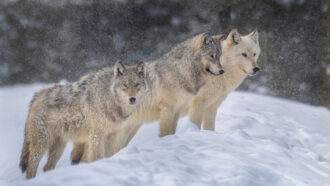 Animals
AnimalsThis parasite makes wolves more likely to become leaders
Gray wolves infected with Toxoplasma gondii make riskier decisions. This makes them more likely to become pack leaders or strike out on their own.
By Jake Buehler -
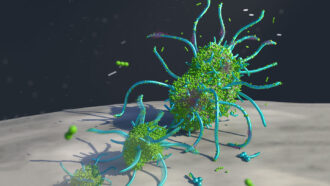 Microbes
MicrobesMouth-crawling superbugs cause severe cavities in kids
In kids with severe tooth decay, fungi and bacteria team up to create superorganisms that can crawl across teeth.
-
 Archaeology
ArchaeologyNeandertals were a lot like our human ancestors
From toolmaking to healthcare, new research finds that Neandertals shared many cultural and social similarities with our human ancestors.
-
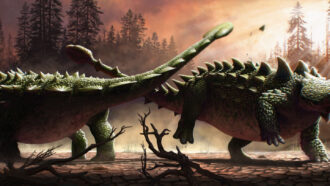 Fossils
FossilsArmored dinos may have used tail clubs to bash each other
Broken spikes on a fossil dino’s sides are consistent with the armored beast having received a mighty blow from another ankylosaur’s tail club.
By Jake Buehler -
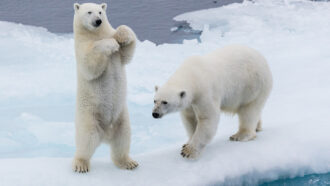 Animals
AnimalsTiny bumps on polar bear paws help them get traction on snow
Super-small structures on the Arctic animals’ paws might offer extra friction that keeps them from slipping on snow, a new study concludes.
By Meghan Rosen -
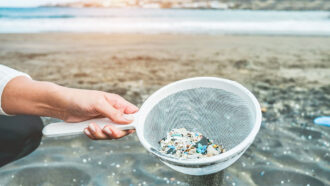 Environment
EnvironmentMicroplastic pollution aids viruses and prolongs their infectivity
The tiny plastic bits give these germs safe havens. That protection seems to increase as the plastic ages and breaks into ever smaller pieces.
-
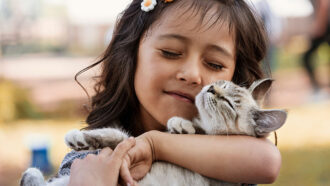 Health & Medicine
Health & MedicineAn asthma treatment may also help tame cat allergies
Adding a therapy used to treat asthma improved cat allergy symptoms for more than a year, a small study found.
-
 Animals
AnimalsSplatoon characters’ ink ammo was inspired by real octopuses and squid
In Nintendo’s Splatoon game series, Inklings and Octolings duke it out with weapons that fire ink. How does this ink compare with that of real octopuses and squid?
-
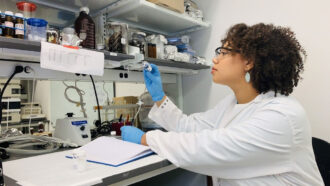 Environment
EnvironmentThis chemist uses online videos to teach about the perils of microplastics
Imari Walker says her journey as a scientist and science communicator lets her talk about and advocate for her passion.
-
 Environment
EnvironmentBacterial ‘living wires’ could help protect the seas and climate
Long, thin bacteria that conduct electricity may be able to help clean up oil spills and reduce emissions of methane, a powerful greenhouse gas.
By Nikk Ogasa -
 Humans
HumansEight billion people now live on Earth — a new record
The global population hit this milestone on November 15, according to an estimate from the United Nations.
-
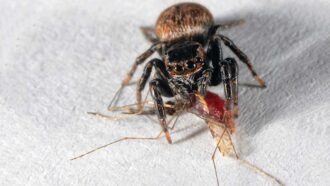 Animals
AnimalsIf mosquitoes vanished, would we miss them? Vampire spiders might
Vampire spiders get their meals from blood-filled Anopheles mosquitoes. But if those insects disappear, the spiders will likely adapt.